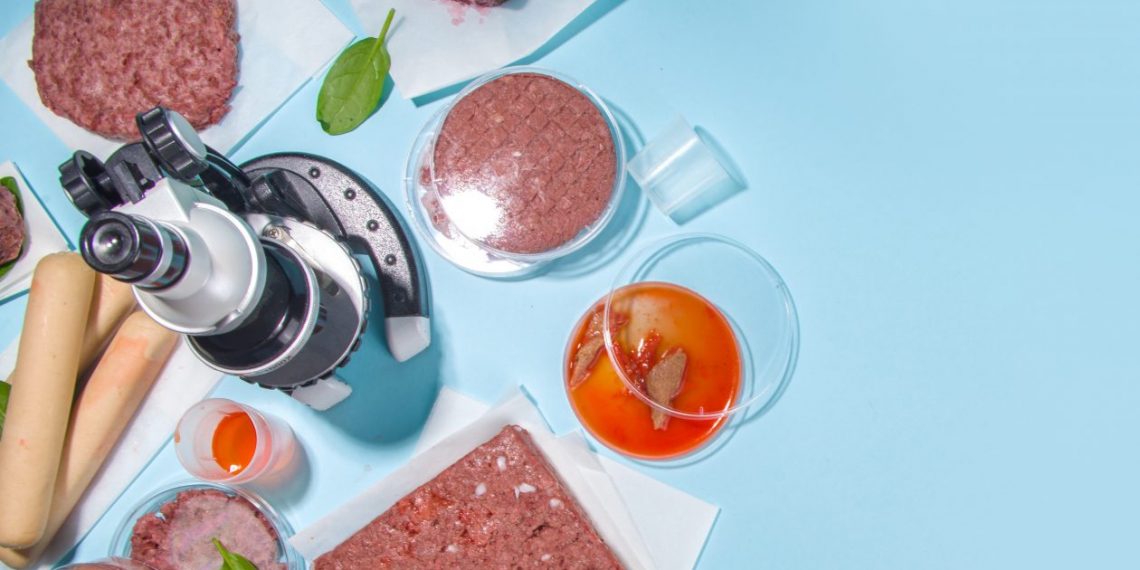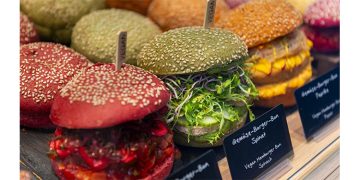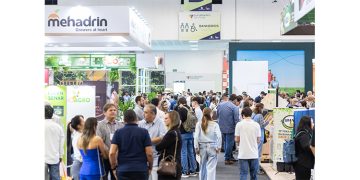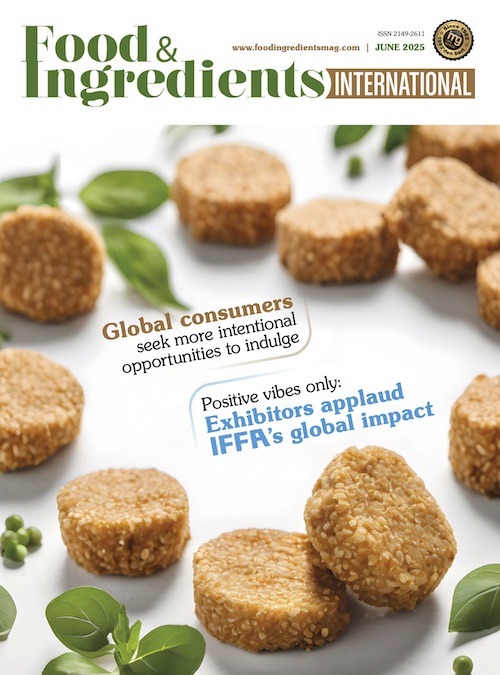IFFA is the world’s leading trade fair for innovations in process technology for meat and alternative proteins. New plant-based products, innovative fermentation processes, and the future-oriented subject of cultivated meat are revolutionizing our entire food system and will be one of the main topics of discussion at IFFA. The team at IFFA spoke to Ivo Rzegotta, Senior Communications Manager, Germany at the Good Food Institute Europe, about the challenges and opportunities in this transformation process.

Mr. Rzegotta, the market for alternative proteins is growing; more people want to eat more sustainably and consume less conventional meat. The spectrum of alternative-protein products ranges from completely plant-based meat substitutes to hybrid products and cultivated meat. Can you give us an overview of how these individual segments are currently developing in Germany?
“Worldwide, at least 1,150 companies are producing plant-based alternatives to animal products, and they include both innovative start-ups and established companies in the food industry. At least 70 of them are based in Germany. Moreover, there are also numerous B2B companies that are forging ahead with developments in this field. Germany is by far the largest market for plant-based alternative products in Europe. In terms of sales, the German market for plant-based foods grew by 11 percent to € 1.9 billion in 2022 and has grown by a total of 42 percent since 2020. Against the background of increasing product quality, we expect dynamic growth to continue, particularly as we are seeing numerous innovations in categories that have fallen behind to date, e.g., plant-based fish products and structured products such as plant-based steak.
At present, the market for alternative proteins is made up almost entirely of plant-based products, and it will be some time before cultivated meat and fermentation-based products are launched onto the German market. Accordingly, hybrid products made from animal and vegetable protein occupy only a niche in the market. Nevertheless, representative polls of the population indicate that consumers are extremely open to cultivated and fermentation-based products, which makes Germany a highly promising market for such sustainable options.”
Cultivated meat is not yet approved as a food in Europe. When do you think cultivated meat will go on sale, and what are the current obstacles to this? What is the situation in Germany?
“In recent months, there has been great progress towards the launch of cultivated meat onto the market. The first products have been approved in the USA, and similar procedures are underway in other markets, too. When such products will reach the German and European markets depends basically on two things: firstly, production costs must be cut further, and the necessary manufacturing capacities built up before the products are ready for the mass market. This calls not only for private investment but also for significantly more public funding in research and infrastructure. Although Germany has invested large sums in the energy and transport revolutions, a comparable effort to bring about a food revolution is still outstanding. Secondly, cultivated meat is covered by the EU’s Novel Food Regulation, which calls for a thorough food safety review before such products can be sold in the EU. However, this process is extremely bureaucratic and takes much longer than in other parts of the world. Therefore, the German government should do more to help companies with customised advisory services.
Germany can boast several highly promising start-ups in the field of cell cultivation. However, as an important industrial location, Germany is primarily a pioneer in the upstream areas, e.g., in the development of sustainable culture media and the production of fermenters for cultivation and fermentation. Moreover, German companies such as Merck, The Cultivated B, and GEA have positioned themselves as the backbone of this new industry sector far beyond the country’s borders.”
Another fascinating field is fermentation because, using microorganisms, fermentation makes possible the production of foodstuffs that not only look and taste like meat but also have the same cooking properties. Where are we in this process, and how could further progress be made?
“The fermentation segment is just beginning to develop its full potential within the alternative protein sector. Currently, at least 136 companies worldwide are working on the production of sustainable proteins using modern fermentation processes. Germany is very strong in this area, with the third most startups after the USA and Israel, including, for example, Formo, Mushlabs, and Kynda. As a result, the German ecosystem is on its way to becoming a global powerhouse in this emerging category.
The challenges in the field of fermentation are basically the same as in cell cultivation: the technologies behind them work, and companies have shown that they can be used to produce tasty and sustainable products. However, to bring the production price down to the level of its animal counterparts and to produce significant quantities, efforts must now be made by both private investors and political decision-makers to achieve this.”
You mentioned that we in Germany meet all the requirements to be a global pioneer in the nutrition and protein revolution. What makes you think this? Don’t you think that other states, such as Israel, Singapore, the USA, and the Netherlands, are already ahead of us here?
“Experience shows that the most successful ecosystems for alternative sources of protein emerge when policymakers actively shape the sector with the aim of leveraging economic, environmental, and health potential. Israel and Singapore are pioneers in this area. Large, industrialized countries, such as the USA, China, and Japan, have also taken this path and see the promotion of alternative proteins as a strategic lever for their economic policy. So far, however, no state has an unassailable lead in this area. If the German government is committed to implementing the commitment to promote alternative sources of protein made in the coalition agreement, then Germany would be able to join the leaders. Basically, we have everything required: an innovative start-up landscape, strong food and agriculture sectors, an excellent research system, and open-minded consumers.
At this juncture, it is crucial that politicians map out the best course to be taken when it comes to research funding, infrastructure development, regulation, and fair competition, and help established players in the food and agriculture sectors bring about the transformation. In particular, this calls for a national roadmap setting out what needs to be done to make Germany the global innovation leader in the field of alternative proteins by 2030.”



















